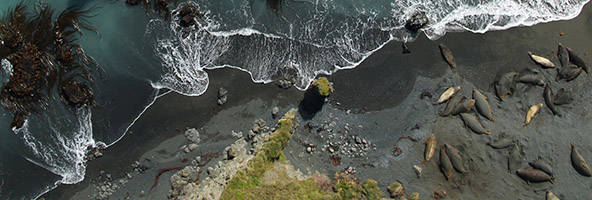First, do no harm. A guide to using drones to study wildlife.
³ÉÈË´óƬ environmental researchers have called for a ‘’ in using unmanned aerial vehicles (drones) for wildlife monitoring and protection, and other biological field research.

The researchers, from the University’s or Adelaide Drone Hub, say that drones are a useful tool for field research and their use is growing in popularity.
But, they warn in a report published in the Cell Press journal , this new technology could also have undesirable and unforeseen impacts on wildlife and there is currently little understanding of the risks.
The report authors are , researcher and PhD candidate in the URAF, and , Director of URAF and a global pioneer in the use of drones for conservation as founding director of the not-for-profit organisation .
Read the full Ìý²¹²Ô»å .
This research was covered by:
Ìý

The researchers, from the University’s or Adelaide Drone Hub, say that drones are a useful tool for field research and their use is growing in popularity.
But, they warn in a report published in the Cell Press journal , this new technology could also have undesirable and unforeseen impacts on wildlife and there is currently little understanding of the risks.
The report authors are , researcher and PhD candidate in the URAF, and , Director of URAF and a global pioneer in the use of drones for conservation as founding director of the not-for-profit organisation .
Read the full Ìý²¹²Ô»å .
This research was covered by:
Ìý

Newsletter & social media
Join us for a sensational mix of news, events and research at the Environment Institute. Find out aboutÌýnew initiatives andÌýshare with your friends what's happening.
ÌýÌýÌý
